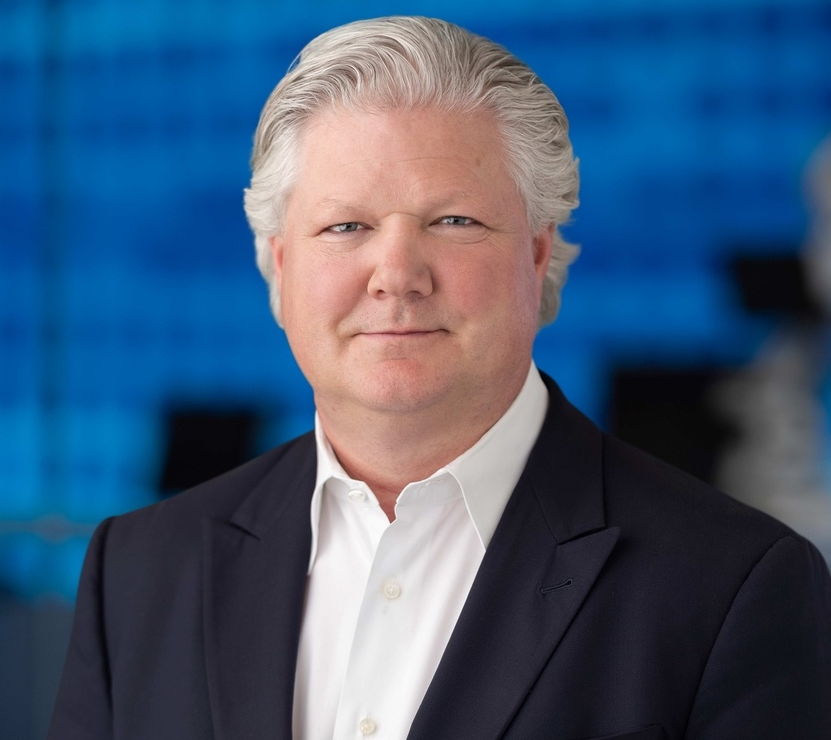

Loving Your Eyes at Work Takes Work
April 12, 2024
5 mins read


April 12, 2024
5 mins read
By David J. Endicott
It is hard to exaggerate the importance of sight to every aspect of our lives – from its daily details to its unforgettable milestones. We depend on our eyes to admire our world, enjoy our family and friends, and earn a living. Indeed, a global survey of people over 50 we recently conducted showed that vision and mobility were tied as the second most important quality of aging, just one percentage point behind memory.


David J. Endicott, Alcon Chief Executive Officer
Every World Sight Day serves as a clear, simple reminder to #LoveYourEyes. But that’s easier said than done. It takes work. Last year, I wrote about how charting the course for healthy vision over a lifetime must start at a young age, within our own communities. This year, I’m reflecting on a critical next step for lifelong healthy vision: preserving and protecting our eyes throughout our extended time in the workforce by mitigating threats to sight, creating a healthy vision culture, and finding opportunities to increase access to eye care.
Worldwide, the average person will spend 90,000 hours at work over their lifetime. During this time spent at work, we use our eyes intensively. Whether it’s gazing at a computer screen, managing a shipment on a factory floor, pouring concrete at a construction site, responding to an emergency—the list goes on—healthy eyes are paramount to productive workforces and safe workers.
And while every occupation is unique, one thing remains universal: Our sight faces threats from all angles.
The time we spend staring at computer screens or digital devices has a variety of increasingly well-documented impacts on our vision and the health of our eyes. Some jobs may put the physical structure of the eye at risk. Last year, there were nearly 20,000 work-related eye injuries in the U.S. alone, 90 percent of which were preventable with appropriate safety eyewear. Even the very air around us is a threat to our vision. The cornea‚ one of the most sensitive structures in the human body, is extremely susceptible to environmental pollutants, which can harm people who primarily work outdoors.
As we strive to keep pace with the evolving threats to sight, we will see ways to build a future where both long-term eye health and everyday eye safety are at the forefront of workplace consciousness.
Think about the last time you relied on a coworker — to meet a deadline, to cover a shift, or to be there for you during a personal crisis. We go to our colleagues for daily support. So why not rely on our peers to make healthy vision at work a priority?
We have an opportunity to create a stronger ecosystem of healthy eyes in the global workforce: First, by promoting healthy vision among coworkers; then, by finding opportunities to increase access to eye care for employees and the communities around us.
For individuals, start small. Adopt sight-preserving habits yourself. A good practice for people in digital-intensive jobs: Follow the 20-20-20 Rule. Every 20 minutes, look at something 20 feet away for at least 20 seconds. Also consider adjusting computer settings to protect your vision long-term. For those in occupations outside of the traditional office, eye health is just as important. For labor intensive jobs — be it a medical assistant or construction manager or agricultural worker — safety glasses, goggles and protective eyewear are a first line of defense.
You might be surprised about the benefits of these simple steps: protecting vision and improving eye health can result in better work and increased productivity.1 And as these practices become a habit for you, encourage your coworkers to do the same. That’s how we start to create a healthy vision culture.
World Sight Day is meant to inform and inspire everyone, even those without the privilege of vision care benefits. As employers, we have two major ways to support better eye health. First, of course, we can ensure eye care is available, accessible, and affordable to all of our employees, through benefits and employee programs. Encouraging annual eye exams is an excellent way to protect vision. But we can also support efforts to improve access for everyone.


Photo provided by Alcon associate Ankur Sharma
Globally, nearly 160.7 million individuals who have moderate to severe vision loss were of working age.2 The cost of the loss in productivity resulting from this impairment is estimated to be $411 billion annually. Even the slightest vision impairment can reduce productivity by 10 percent and accuracy by 22 percent.3
To help address this challenge, Alcon works with its partners through philanthropic support and training programs, with the goal of reaching 5 million people afflicted with untreated cataracts in low- and middle-income countries. Our associates also volunteer to improve vision and enhance academic success by providing 150,000 free vision screenings to elementary school children and connecting those in need with comprehensive care. Of course, you don’t have to be an eye care company to see that paving the way for healthy, protected eyes is good business and a noble purpose, both inside and outside your walls.
There is no limit to the positive change that can emerge from coming together with our colleagues and employees to prioritize healthy vision. Take the first step now: Give your eyes a break from this screen. Then, find a moment to talk to your colleagues about what you can do to #LoveYourEyes at work.
###
David J. Endicott is the Chief Executive Officer of Alcon, the global leader in eye care. Headquartered in Geneva, Switzerland, Alcon was founded in Fort Worth, Texas, more than 75 years ago and is today the largest eye care company in the world.